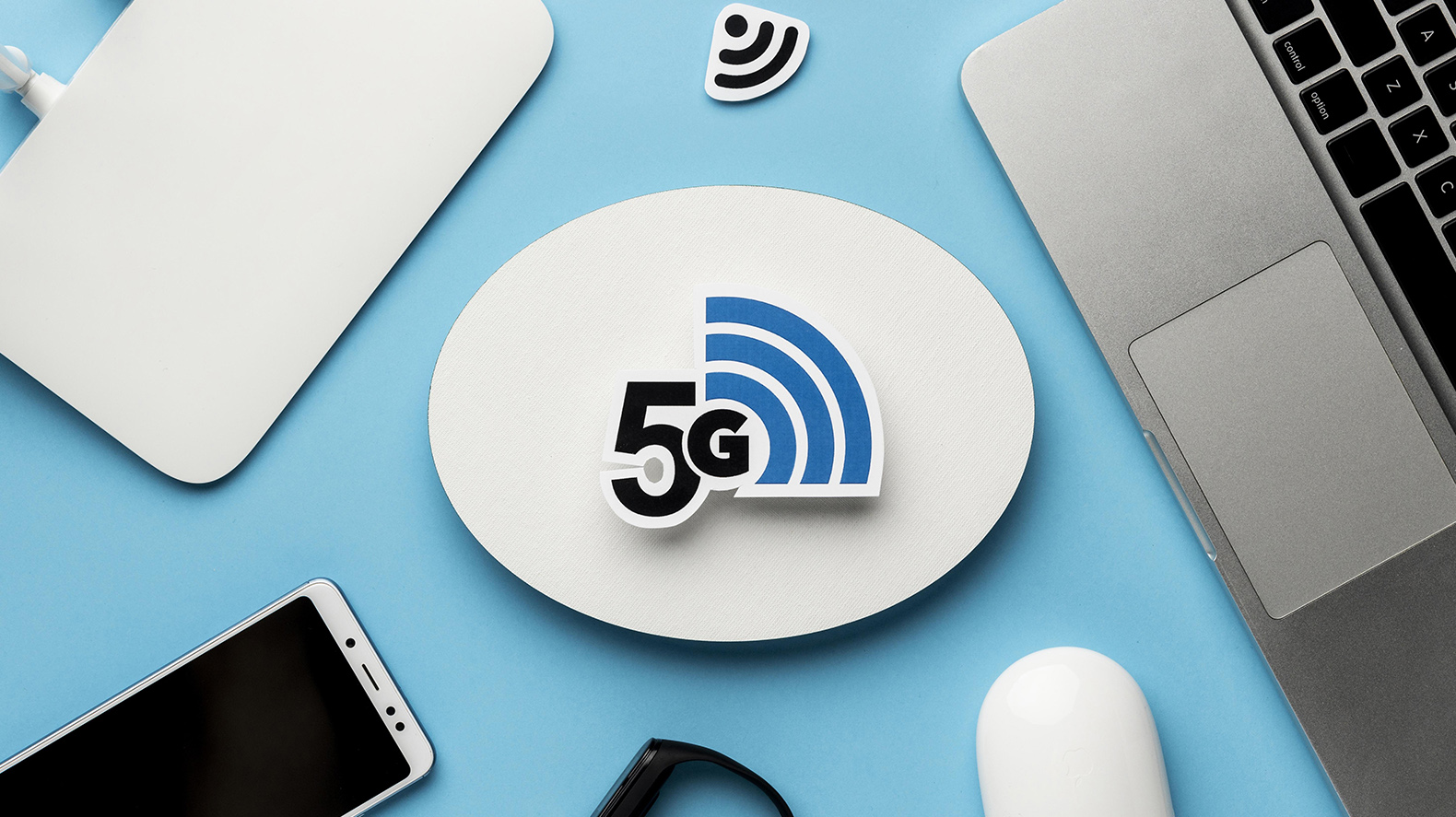How 5G Technology Will Change The World

In the fast-paced world of technology, continuous advancements have brought us to the dawn of the era of 5G. 5G will change the world and revolutionize how we communicate, connect, and conduct business. With its unmatched speed, extremely low latency, and enormous bandwidth capacity, 5G is not only an improvement over its forerunners. It is a giant step toward an endlessly promising future.
In this article, we will explore the evolution of wireless technology from 1G to 5G and delve into the key features of 5G. We will examine its impact on different industries and uncover its role in the Internet of Things (IoT). Moreover, we will discuss its potential to shape smart cities and address the implications for privacy and security. Finally, we will explore the challenges and opportunities in the widespread adoption of 5G, ultimately revealing how this groundbreaking technology will change the world as we know it.
The Evolution from 1G to 5G: A Quick Overview
Since the introduction of the first generation (1G) in the 1980s, wireless communication has advanced significantly. 1G introduced us to analog cellular networks, allowing for basic voice calls, but it was slow and had limited coverage. Apart from that, the second generation (2G) brought digital networks, enabling text messaging and modest data capabilities. Whereas 3G improved data transmission, facilitating internet access and multimedia applications. Then fourth generation (4G) marked a significant advancement with higher data speeds. It paved the way for mobile Internet, video streaming, and app-based services.
Finally, we reach 5G - the epitome of connectivity and innovation. Boasting speeds up to 100 times faster than 4G, 5G's ultra-low latency of just a few milliseconds will enable real-time interactions and a seamless user experience. Additionally, 5G will handle an enormous number of connected devices, making it the foundation of the Internet of Things (IoT) and smart cities. This remarkable evolution will reshape industries and societies worldwide.
The Key Features of 5G
If you are wondering how 5G will change the world, note that 5G technology stands on three pillars that define its revolutionary capabilities:
Enhanced Data Speeds: With speeds ranging from 10 to 100 Gbps, 5G will deliver unprecedented data rates. It will empower users to download high-definition videos in seconds and experience seamless live streaming.
Ultra-Low Latency: Data transmission latency is the amount of time it takes for data to reach the recipient. 5G's ultra-low latency of a few milliseconds will enable real-time responsiveness, which is crucial for applications like autonomous vehicles and remote surgeries.
Massive Device Connectivity: 5G will support up to 1 million connected devices per square kilometer. It far surpasses the capacity of previous generations. This will facilitate the growth of the Internet of Things and smart devices, enhancing automation and efficiency in various sectors.
The Impact of 5G on Different Industries
The advent of 5G will have a transformative impact on various industries:
Healthcare: Telemedicine will flourish with 5G's real-time communication, enabling remote consultations and continuous monitoring of patients. Additionally, the use of augmented reality (AR) and virtual reality (VR) could enhance surgical techniques and medical training.
Transportation: 5G's low latency and high-speed connectivity will accelerate the development of autonomous vehicles, making roads safer and improving traffic management.
Manufacturing: The manufacturing sector will witness a surge in automation thanks to 5G's ability to support a vast number of IoT devices and provide real-time data insights. This will lead to increased productivity and streamlined operations.
Education: Remote learning will become more interactive and engaging with AR and VR-powered lessons. It will enable students to experience virtual classrooms and immersive educational content.
Entertainment: 5G will revolutionize the entertainment industry, enabling immersive AR/VR experiences. It will bolster the gaming industry with cloud gaming and ultra-fast downloads.
Retail: Enhanced connectivity will lead to a seamless shopping experience with cashier-less stores, personalized advertisements, and augmented reality try-on solutions.
The Role of 5G in IoT (Internet of Things)
The Internet of Things (IoT) is a network of interconnected hardware and software-enabled items that may connect to one another and share data. Unlocking the IoT's full potential depends on 5G's capabilities:
Device Proliferation: With 5G's ability to handle massive device connectivity, IoT adoption will skyrocket. It is because billions of smart devices, from wearable health monitors to smart home appliances, become interconnected.
Energy Efficiency: 5G's low power consumption will extend the battery life of IoT devices. Such extension will reduce the environmental impact and promote sustainable technology.
Real-Time Data Analysis: 5G's low latency will enable instant data processing. It is essential for applications that must be completed quickly, such as infrastructure for smart cities and driverless cars.
Industrial IoT: The manufacturing and industrial sectors will benefit from 5G-enabled IoT solutions, optimizing processes, and predictive maintenance, leading to cost savings and increased efficiency.
5G and the Future of Smart Cities
As the world becomes increasingly urbanized, the concept of smart cities emerges as a solution to address the challenges of urban living. 5G plays a pivotal role in shaping the future of smart cities:
Infrastructure Management: 5G-powered sensors and devices will monitor critical infrastructure, like transportation systems and utilities, optimizing maintenance and resource allocation.
Traffic Management: 5G-enabled traffic management systems will enhance mobility, reduce congestion, and pave the way for autonomous vehicles to navigate seamlessly.
Public Services: Smart cities will utilize 5G for improved public safety, healthcare, and education services, enhancing the overall quality of life for residents.
Sustainable Solutions: 5G-powered smart grids will optimize energy consumption. Moreover, the environmental sensors will monitor pollution levels, fostering sustainability within urban environments.
Implications for Privacy and Security in the 5G Era
While 5G brings a myriad of benefits, it also raises concerns about privacy and security:
Data Vulnerability: With more devices connected through 5G, the potential for data breaches and cyberattacks increases, necessitating robust security measures.
Surveillance and Privacy: The widespread deployment of IoT devices in smart cities may raise concerns about surveillance and data privacy. Striking a balance between security and individual privacy is a critical challenge.
Regulatory Frameworks: Policymakers need to adapt and establish comprehensive regulations to address the unique security challenges posed by 5G technology.
Challenges and Opportunities in the Adoption of 5G
The journey to widespread 5G adoption comes with its own set of challenges and opportunities:
Infrastructure Development: Extensive infrastructure changes are needed for the introduction of 5G, which may be expensive and time-consuming.
Global Connectivity: Ensuring consistent 5G coverage in rural and remote areas poses a challenge, but it also presents an opportunity for economic development and bridging the digital divide.
Compatibility and Integration: Transitioning from older networks to 5G requires seamless integration and compatibility, necessitating substantial investment in research.
Conclusion
With its unrivaled connection and innovation, 5G technology is ready to transform the world. Its ultra-high speeds, low latency, and massive device capacity will reshape industries, create smarter cities, and enable a new era of interconnectedness. But there are obstacles in the way of this transition, particularly in the areas of infrastructure development, security, and privacy. We can guarantee a future in which 5G technology actually transforms the world for the better by tackling these issues and seizing opportunities. As we embrace this technological leap, it is vital to remain conscious of its potential impact and responsibly navigate the path toward a more connected and prosperous future.
